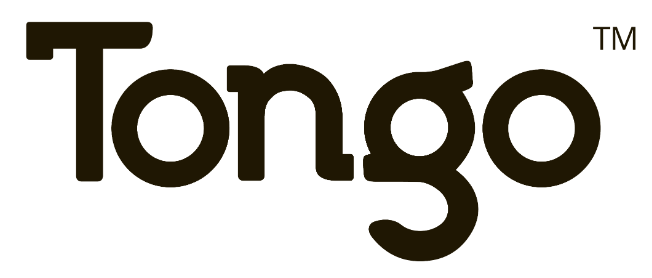Retirement Account Options for Real Estate Agents
One of the joys of being a real estate agent is having the flexibility and independence to make your own hours. But one of the caveats of being your own boss is that you also have to make your own retirement plans.
If you’re like most real estate agents, you work as an independent contractor, which means your brokerage probably doesn’t offer a 401(k) or other retirement savings plan. Fortunately, you can still save for the future and utilize one of several tax-advantaged retirement plans, even if you’re self-employed. Here are your options:
Individual Retirement Accounts (IRAs)
IRAs are among the most popular ways to save for retirement for real estate agents (and other independent contractors). There are two main types of IRAs – Roth IRAs and traditional IRAs.
Both Roth IRAs and traditional IRAs are subject to annual contribution limits set by the Internal Revenue Service (IRS). For the 2023 tax year, the limit is $6,500, though individuals who are 50 and older can contribute an additional $1,000 (known as a catch-up contribution), for a total of $7,500.
Roth IRAs
Roth IRAs are unique because you can enjoy tax-free gains on your investments as long as your withdrawals are qualified (that means waiting until age 59½ unless you qualify for an exception to the 10% penalty). Because of this benefit, any money you contribute to a Roth IRA will be money you’ve already paid income tax on.
Besides the annual contribution limit, contributions to Roth IRAs are restricted to individuals whose taxable income falls below certain IRS thresholds. For example, if you’re single and your taxable income in 2023 is $153,000 or more, you can’t contribute to a Roth IRA (though you can still contribute to a traditional IRA).For more information, visit the IRS website.
Traditional IRAs
With a traditional IRA, your contributions are tax-deferred, so you won’t pay taxes on the money in these accounts until you make a withdrawal. In many cases, you can reduce your taxable income for the year by the amount you contribute. (Note that certain limitations may apply if you file jointly and your spouse participates in an employer-sponsored retirement plan.)
Though traditional IRAs have the same contribution limits for 2023 ($6,500 for individuals under 50, $7,500 for those 50 and older) as Roth IRAs, traditional IRAs do not have any income limits, so virtually anyone with a taxable income can contribute.
Simplified Employee Pension (SEP) IRA
A Simplified Employee Pension, or SEP-IRA, is another type of tax-deferred retirement plan that can be a great fit for real estate agents. As a self-employed real estate agent, you can contribute up to 25% of your net income to your SEP or as much as $66,000 for 2023 – whichever is less. If you’re self-employed and have a SEP-IRA, you can use the rate table in IRS Publication 560 to calculate the annual deduction amount. SEP-IRAs can be an excellent choice for real estate agents to save for retirement because they’re easy and inexpensive to set up and maintain. They also offer higher contribution limits, allowing you to save more for retirement when you earn more commissions or scale back if business slows.
Self-Directed IRAs (SDIRAs)
As a real estate agent, you might be wondering if you can invest directly in real estate to help fund your retirement. SDIRAs (sometimes called participant-directed IRAs) give you the flexibility to use your retirement plan to invest in some alternative assets – including real estate – in addition to more common securities like stocks, bonds, and mutual funds. You can opt for a Roth or a traditional SDIRA, but in either case, all the same rules apply. Be aware that while SDIRAs offer a greater variety of investment options, they can also come with greater risks.
During your research on retirement planning, you might come across the term “real estate IRA.” A real estate IRA is simply a SDIRA through which you can purchase investment property. Even if you don’t hear someone call a SDIRA a real estate IRA, you can still buy residential and commercial real estate with a SDIRA, as long as it’s used exclusively as an investment.
Solo 401(k)
If you want to open a 401(k) as a real estate agent, a Solo 401(k) – also known as an Individual 401(k), i401(k), or one-participant 401(k) – allows you to save for retirement as a one-person business with no employees. To open a Solo 401(k), you need an Employer Identification Number (EIN). Solo 401(k) plans can also be tax-deferred, like an ordinary 401(k), or taxed on a Roth basis, which means you pay tax on the money you contribute, but can take qualified distributions tax-free.
With a Solo 401(k), you act as both the employer and the employee. Like any other 401(k) plan, a Solo 401(k) allows you to contribute a maximum of $66,000, which includes the amount you set aside for yourself as the so-called “employee” and the amount you contribute as your own employer. However, like all 401(k) plans, you can only defer a maximum of $22,500 for 2023 (or up to $30,000 with catch-up contributions). individuals who are 50 and older can use the $7,500 catch-up contribution limit for 2023 to put up to an additional $7,500 (on top of the $66,000) towards their retirement savings.
Conclusion
From Solo 401(k) plans to a self-directed real estate IRA, there are plenty of ways for real estate agents to start planning for retirement today. Though real estate agents often have to carve out their own retirement strategy, these plans allow you to take advantage of tax benefits and flexible contributions to secure your eventual retirement from real estate.

